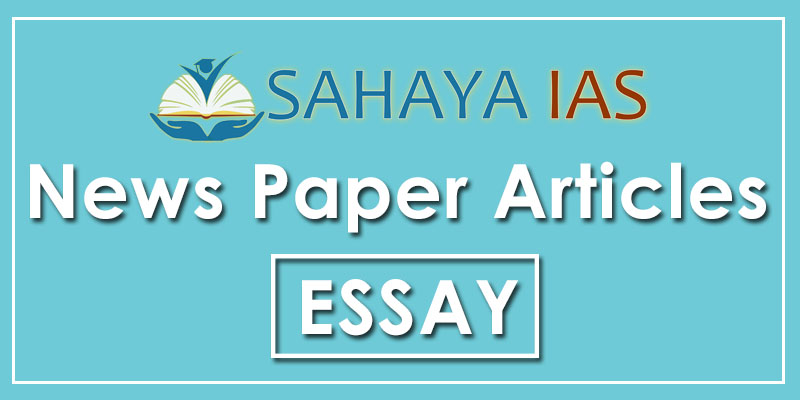The Instrument of Accession
- Unlike other princely States that started making choices after the Partition Plan was announced on June 3, 1947, J&K dithered.
- On August 12, 1947, Maharaja Hari Singh signed a Standstill Agreement with both India and Pakistan.
- Pakistan did not honour it. It invaded J&K in the third week of October.
- Confronted with the absorption of his State into Pakistan, the Maharaja signed the Instrument of Accession on October 26, 1947.
- The schedule attached to the Instrument of Accession specified that the Dominion of India could only make laws relating to Defence, External Affairs, Communications, and ancillary matters.
- With the issue of plebiscite under UN auspices still hanging, India moved to consolidate its relationship with the State by enacting Article 370 on October 17, 1949.
- The Delhi Agreement of 1952 followed Article 370.
Implications
- It was pursuant to this agreement that the Constitution (Application to Jammu and Kashmir) Order of 1954 was promulgated by the President of India.
- It contains Article 35A, which empowers the State Legislature to define permanent residents.
- That is why Article 35A is not found in the main body of the Constitution; it is in the Presidential Order having exclusive application to J&K.
- Therefore, striking it down will have implications for other constitutional amendments contained in the 1954 Presidential Order.
Explaining Article 35A
- Article 35A was born through a Presidential Order, the Constitution (Application to Jammu and Kashmir) Order of 1954, it was added to the Constitution without undergoing the procedure for constitutional amendments as laid down in Article 368.
- The Presidential Order was issued in exercise of the power conferred under Article 370 (1) (d) of the Constitution.
- Whether such power also extends to inserting a new Article in the Constitution is contentious.
- Article 35A declares that any law enacted by the J&K State Legislature on the issues of permanent residence, or special privileges and rights, or imposition of restrictions, or employment, acquisition of immovable property and settlement in the State, or aid from the State government shall not be void on the ground that it is inconsistent with any rights conferred on other citizens of India.
- In short, such laws granting special rights to permanent residents would not be deemed a violation of the fundamental rights of other citizens.
Classification of citizens
- The ‘classification’ created by Article 35A has to be tested on the principle of equality as it treats non-permanent residents of J&K as ‘second-class’ citizens.
- Such persons are not eligible for employment under the State government and are also debarred from contesting elections.
- Meritorious students are denied scholarships and they cannot even seek redress in any court of law.
- The major sufferers are women who marry outside J&K. Though they retain their Permanent Resident Certificate, their children cannot be permanent residents.
- This restricts their basic right of inheritance.
- Further, the issues of refugees who migrated to J&K during Partition are still not treated as ‘State subjects’ under the J&K Constitution.
- This matter requires the active participation of all stakeholders.
- It is necessary to give confidence to the residents of J&K that any alteration in status quo will not take away their rights but will boost J&K’s prosperity as it will open doors for more investment, resulting in new opportunities.
There is a reason why Article 35A is not found in the main body of the Constitution
- The challenge to Article 35A rests on two constructs.
- The first is that it was inserted unconstitutionally, bypassing Article 368 which empowers only Parliament to amend the Constitution.
- The second is that the laws enacted in pursuance of Article 35A are ultra vires of the fundamental rights conferred by Part III of the Constitution, especially, and not limited to, Articles 14 (right to equality) and 21 (protection of life).
Introducing Article 370
- Though this Article came in through a 1954 Presidential Order, it was in furtherance of the Instrument of Accession which the J&K government had signed with the Indian government.
- The Instrument of Accession gave only limited rights to the Centre to interfere with the autonomy of J&K.
- That is why Article 370 was introduced, to recognise the special status of J&K.
- It said that the power of Parliament to make laws in J&K shall be limited to those matters in the Union List and the Concurrent List which, in consultation with the State government, are declared by the President to correspond to matters specified in the Instrument of Accession.
- Land, rights over land, and settlement in the State are the main issues as land is a State subject.
- Because of the limited accession of the State of J&K and the relatively greater autonomy given to the State, Article 35A is only a recognition of the conditional accession of J&K into India and the restrictions placed on both Parliament and the Constitution that the normal powers of Parliament to make laws will not apply to J&K.
- It is Article 370 that restricted the application of certain provisions of the Constitution to J&K.
- It is pursuant to Article 370 that Article 35A was inserted by way of the 1954 Presidential Order.
- All that it says is that the laws made by the state regarding settlement and acquisition of property will prevail and not be struck down on the ground that they violate fundamental rights.
- Kashmir never acceded fully to India. Therefore, it is a quasi-sovereign State.
- It is not like any other State. Article 35A follows the Instrument of Accession and the guarantee given to the State of J&K that the State’s autonomy will not be disturbed even by the Constitution.



Comments (0)